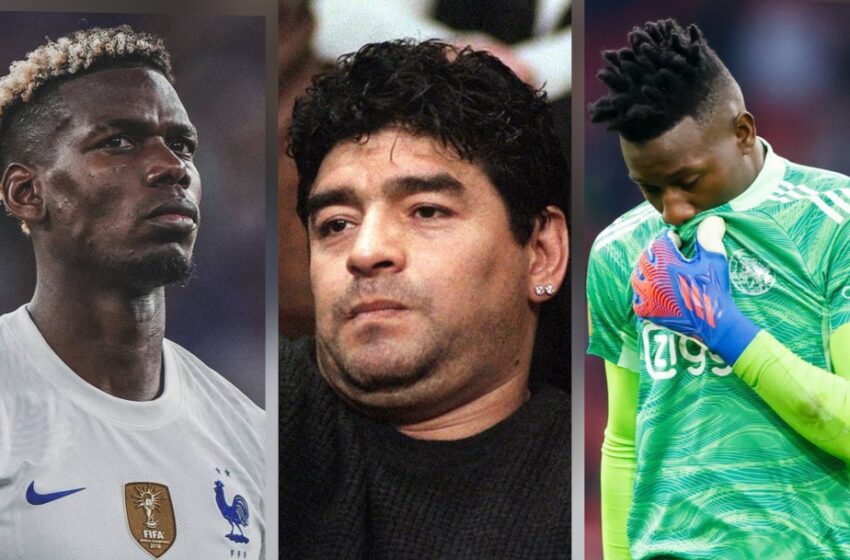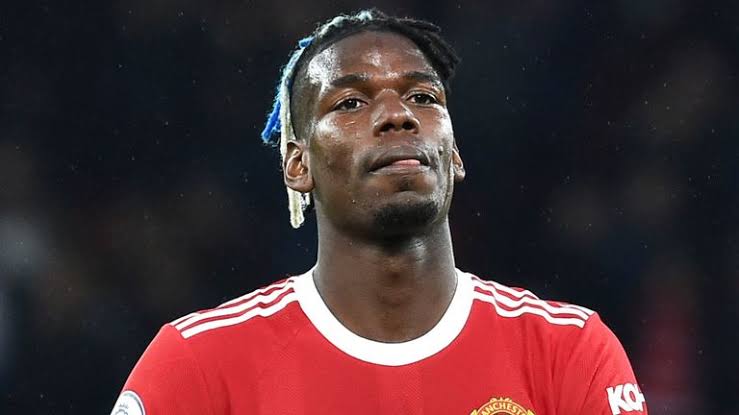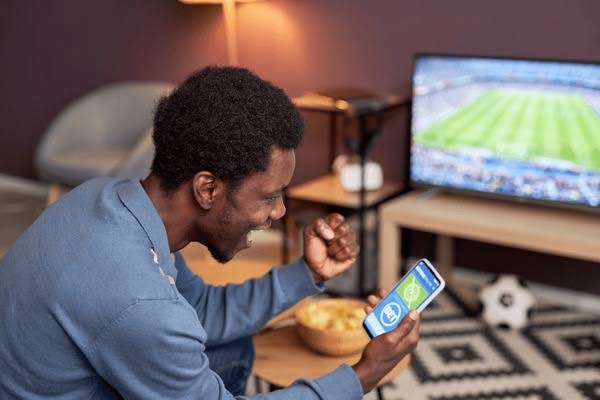Pogba saga… See full list of footballers banned for doping

The football authorities have made it very clear that it is the players’ duty to ensure that no banned substance enters their bodies, whether intentionally or unintentionally. Still, a handful of cases arise in the game every now and then with Paul Pogba the latest victim.
The 2018 World Cup winner has been found guilty of doping and as a result has been slapped with a four year.
This wouldn’t be the first time footballers have been banned for breaking anti-doping regulation. Even with strict rules, there have been many other cases of doping in the round leather game.
In this article, Crispng will reveal 10 other footballers who have been banned for doping in football.
Kolo Touré
Kokô Toure was banned by the FA for six months in May 2011 while he was playing for Manchester City after he tested positive for a prohibited substance in a drug test.
Subsequently, the former defender for Liverpool and Arsenal acknowledged using his wife’s diet pills.
Christopher Quilan QC, the chairman of the commission, declared that the former defender from Ivory Coast “did not intend to enhance sporting performance or to mask the use of a performance-enhancing substance.”
However, despite testing positive for a prohibited substance, he was still imposed a six-month ban, retroactive to March.
Edgar Davids
Even though Edgar Davids is more well-known for his dreadlocks and goggles, he was also found using drugs. In 1998, the Dutch midfielder left AC Milan to join Juventus. However, in 2001, while he was still at Juventus, he tested positive for nandrolone, an illegal anabolic steroid. He received a four-month suspension for doping, although he maintained that he had not used the substance.
Adrian Mutu
After signing with Chelsea in 2003, Mutu scored 10 goals in his first 27 games, much to the delight of the Blues supporters.
But he became entangled in a number of scandals following his first full season with the team.
After failing a drug test, Mutu’s contract was terminated. He had several falling outs with Jose Mourinho, the Chelsea manager at the time.
Mutu received a seven-month ban after testing positive for cocaine, and there was no turning back from that. During his time at Fiorentina and Juventus, Mutu was able to turn his career around. But in 2010, he was detected doping after failing a second drug test.
On this occasion, he received a nine-month suspension and the Serie A powerhouses terminated his contract.
Andre Onana
Manchester United acquired Onana from Inter Milan for a transfer fee of £47.2 million. However, the goalie once stated that taking his wife’s pills by mistake nearly ended his career.
The then Ajax keeper was suspended by the union of European football associations (UEFA) even though it was acknowledged that he had inadvertently consumed the prohibited drug furosemide. After filing an appeal, his original 12-month ban was lowered to nine months.
Jake Livermore
When the midfielder was still with Hull City in May 2015, he tested positive for cocaine.
After that, Livermore was barred from playing football for the rest of the Premier League season while an inquiry was conducted.
The Hull manager, Steve Bruce, disclosed in August of that year that Livermore had used the drug to help him deal with the loss of his infant son, which had occurred soon after the FA Cup final.
His suspension by Hull City was also lifted after a disciplinary hearing the following month determined that the Football Association’s provisional ban would not be extended.
Chris Armstrong
The first-ever Premier League player to be banned for failing a drug test was Chris Armstrong.
In March 1995, Armstrong, then a 23-year-old player for Crystal Palace, tested positive for cannabis. But in less than a month, he was back on the field following a brief rehabilitation programme.
He became the club’s record signing and the most expensive player to ever leave Crystal Palace as at that time when he signed for Tottenham Hotspur for £4.5 million that same year, after Crystal Palace was relegated to the lower division.
Fred
In 2015, Fred was discovered using diuretic hydrochlorothiazide while representing his Brazil, nation in the Copa America competition in Chile. Though it can hide one, it isn’t a performance-enhancing substance by itself. To prevent him from participating in any Donetsk games for four months, FIFA even extended his doping ban globally.
Samir Nasri
After it was discovered that Samir Nasri had gone for a 500 millilitre infusion, he was banned for eighteen months. In actuality, athletes are only permitted to receive a 50 millilitre infusion within a six-hour window by the World Anti-Doping Agency (WADA).
This is how Nasri’s fate was sealed. His protracted ban ended in December 2018 after being retroactively applied to July 1, 2017. As soon as his suspension was over, he was back in action when he signed with West Ham of the Premier League.
Paul Pogba
Paul Pogba is the latest player on course to serve a lengthy ban. The 2018 FIFA World Cup-winning midfielder with France has been slapped with a four year ban for doping by Italy’s National Anti-Doping Tribunal (TNA) at the request of the Anti-Doping Prosecutor’s Office.
Pogba reiterates he didn’t know the supplement he was consuming had testosterone and has promised to appeal the ban at the Court of Arbitration of Sport (CAS) in Lausanne.
Diego Maradona
The majority of football enthusiasts worldwide are undoubtedly aware of Diego Maradona’s past drug use. Maradona is still regarded by many as possibly the best football player of all time.
But the legendary forward’s drug abuse and a number of off-field scandals have also marred his career.
During his time at Napoli in 1991, Maradona tested positive for cocaine and was suspended for 15 months.
He was Argentina’s star player in the 1994 World Cup. Maradona was sent home from the tournament after the game against Greece (in which he scored) after failing a second drug test. That goal against Greece ended up being his last goal for the Argentina national team.
Due to his problematic off-field lifestyle, Maradona’s stint with Napoli came to an end when he received a cocaine-related ban.
He passed away peacefully in his sleep at his Dique Luján, Buenos Aires Province, Argentina, home on November 25 due to cardiac arrest.
See also: Mbappe’s potential destinations: Madrid, United or Saudi Super League?




